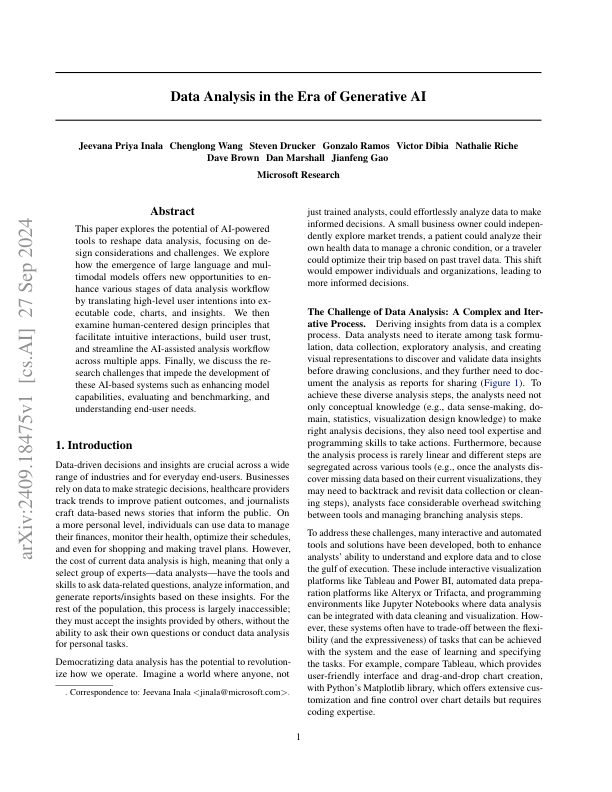
Metadata
- Authors: Jeevana Priya Inala Chenglong Wang Steven Drucker Gonzalo Ramos Victor Dibia Nathalie Riche Da…
- Full Title:: Data Analysis in the Era of Generative AI
- Category:: 🗞️Articles
- URL:: https://arxiv.org/pdf/2409.18475
- Finished date:: 2024-10-10
Highlights
However, the cost of current data analysis is high, meaning that only a select group of experts—data analysts—have the tools and skills to ask data-related questions, analyze information, and generate reports/insights based on these insights. For the rest of the population, this process is largely inaccessible; they must accept the insights provided by others, without the ability to ask their own questions or conduct data analysis for personal tasks. (View Highlight)
Data analysis is inherently iterative. Users must be involved throughout the process because the full specification of the task is usually unknown at the beginning (View Highlight)
Moreover, data analysis is a sensitive domain. Errors can have serious consequences, especially in fields like healthcare or finance (View Highlight)
Statistical assistance. While AI systems for coding components of the data analysis pipeline have received attention, the exploration of these models for other skills, such as statistical proficiency, remains relatively limited. Here are a few examples where LLMs can offer statistical assistance: LLMs can help users select appropriate statistical tests based on tasks and data, such as t tests to compare the means of two groups. They can also help users avoid common pitfalls (Zuur et al., 2010) such as selection bias, misinterpretation of p-values, and overfitting by providing guidance on issues like multiple comparisons and confounding variables. (View Highlight)